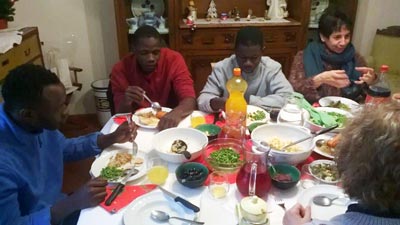
Jul 12, 2016 | Focolare Worldwide
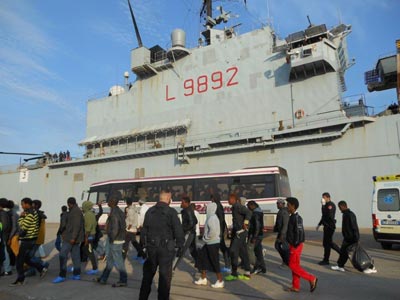 “There is a vein of illusions and dreaming running through the notion of this project,” recounts Flavia Cerino, lawyer and coordinator of activities in Sicily. We have come up against one of the most complex realities regarding migration, one of the most urgent problems: that of unaccompanied foreign minors (UAM) that arrive on the Italian coasts exhausted from the long voyages, but still full of hope for the future. Among the migrants who reach Europe, unaccompanied minors are undoubtedly the ones most in need of support. In the first five months of 2016 (UNICEF), 7,000 new arrivals were registered in Italy, double the number from the same period in previous years. “In order to be able to live legally in Italy, Flavia adds, these teenagers need to be inserted into the work force as soon as possible. If they don’t manage to do that and to obtain the proper documents, once they become legal adults they are considered illegal with the concrete possibility of falling into an illegal underground network.” “We reflected at length on possible interventions,” adds Francesco Tortorella from the NGO Amu (Azione per un Mondo Unito) and one of the promotors of the present project. We also conferred with a variety of professionals that are familiar with the minute details of this issue. Another promoter, the Cooperativa Fo.Co , has been working for years with teenage migrants and accompanying them over the course of their lives. The contribution of the New Families Association was important from the very start: these teenagers are mostly in need of a family in the broadest sense of the word.”
“There is a vein of illusions and dreaming running through the notion of this project,” recounts Flavia Cerino, lawyer and coordinator of activities in Sicily. We have come up against one of the most complex realities regarding migration, one of the most urgent problems: that of unaccompanied foreign minors (UAM) that arrive on the Italian coasts exhausted from the long voyages, but still full of hope for the future. Among the migrants who reach Europe, unaccompanied minors are undoubtedly the ones most in need of support. In the first five months of 2016 (UNICEF), 7,000 new arrivals were registered in Italy, double the number from the same period in previous years. “In order to be able to live legally in Italy, Flavia adds, these teenagers need to be inserted into the work force as soon as possible. If they don’t manage to do that and to obtain the proper documents, once they become legal adults they are considered illegal with the concrete possibility of falling into an illegal underground network.” “We reflected at length on possible interventions,” adds Francesco Tortorella from the NGO Amu (Azione per un Mondo Unito) and one of the promotors of the present project. We also conferred with a variety of professionals that are familiar with the minute details of this issue. Another promoter, the Cooperativa Fo.Co , has been working for years with teenage migrants and accompanying them over the course of their lives. The contribution of the New Families Association was important from the very start: these teenagers are mostly in need of a family in the broadest sense of the word.” 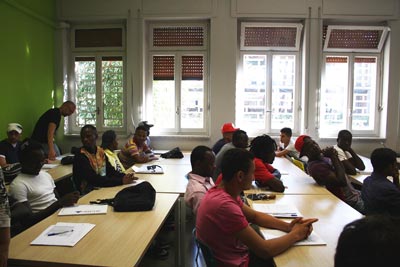 The first phase of the project called “Welcoming & Getting Settled“ was officially begun on last June 6th in Catania and in Ragusa with the launching of professional training courses. Forty three young people were selected, ten of whom were Italians who, because of various disadvantaged backgrounds live in foster settings. The presence of Italian youngsters is a strong point of the project, which wishes to care for vulnerable youngsters regardless of their citizenship. Training will begin in October with the first trainee placements. The second phase of the project – the most innovative – foresees the involvement of businesses that are willing to insert the young people both in the work process and in families in which the young people can find a community of stable relationships that are indispensable for their social integration. Territorial connections have been set up all over Italy that are joined by a secure network that connect families and businesses with the training and work needs of the teenagers. Businesses that belong to the Economy of Communion and to the AIPEC will play a fundamental role, beginning from a network that aims to offer opportunities for the young people who participate in the project to be inserted in the work force.
The first phase of the project called “Welcoming & Getting Settled“ was officially begun on last June 6th in Catania and in Ragusa with the launching of professional training courses. Forty three young people were selected, ten of whom were Italians who, because of various disadvantaged backgrounds live in foster settings. The presence of Italian youngsters is a strong point of the project, which wishes to care for vulnerable youngsters regardless of their citizenship. Training will begin in October with the first trainee placements. The second phase of the project – the most innovative – foresees the involvement of businesses that are willing to insert the young people both in the work process and in families in which the young people can find a community of stable relationships that are indispensable for their social integration. Territorial connections have been set up all over Italy that are joined by a secure network that connect families and businesses with the training and work needs of the teenagers. Businesses that belong to the Economy of Communion and to the AIPEC will play a fundamental role, beginning from a network that aims to offer opportunities for the young people who participate in the project to be inserted in the work force.  The New Families NPO Association’s network has been activated for months, promoting willingness to welcome the young people, since it has already had experience in welcoming them for periods of vacation. “At the end of 2015,” Paola Iacavone wrote, “seven teenagers who live in a group home have been able to have an experience in a family, which was for them and for the family that welcomed them, a very positive experience. They were from Egypt, Mali and Senegal, Coptic Orthodox Christians and Muslims – and they were welcomed by families from Rome, Lanciano, Ancona and Cosenza, Italy.” In short, this experience has only just begun! The project was highly welcomed by the institutions and, if this first experimental model functions, it will certainly be proposed and carried out on a larger scale just as everyone hopes it will. For more information, details and how to contribute go to project website.
The New Families NPO Association’s network has been activated for months, promoting willingness to welcome the young people, since it has already had experience in welcoming them for periods of vacation. “At the end of 2015,” Paola Iacavone wrote, “seven teenagers who live in a group home have been able to have an experience in a family, which was for them and for the family that welcomed them, a very positive experience. They were from Egypt, Mali and Senegal, Coptic Orthodox Christians and Muslims – and they were welcomed by families from Rome, Lanciano, Ancona and Cosenza, Italy.” In short, this experience has only just begun! The project was highly welcomed by the institutions and, if this first experimental model functions, it will certainly be proposed and carried out on a larger scale just as everyone hopes it will. For more information, details and how to contribute go to project website.
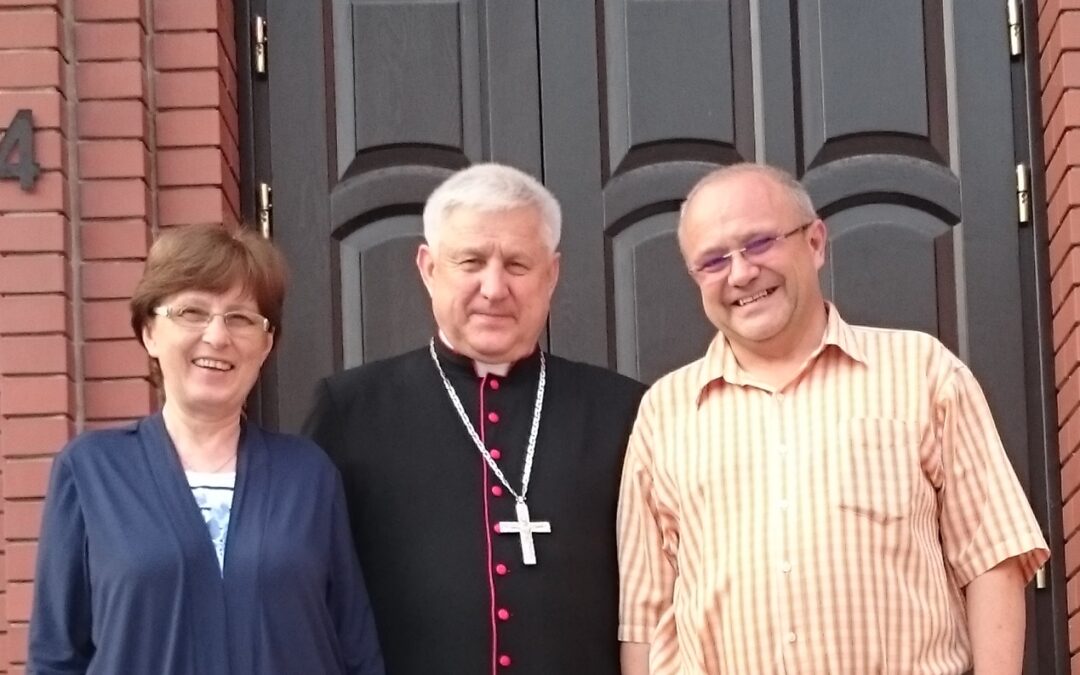
Jul 11, 2016 | Focolare Worldwide
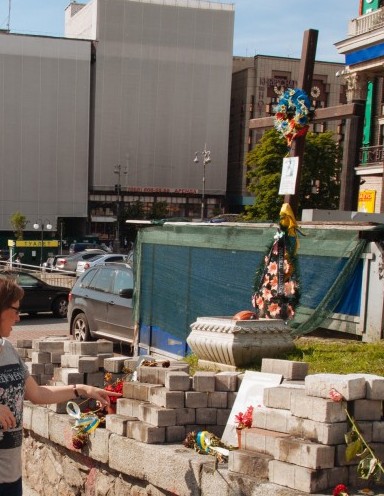 From the end of 2013 when the brazen unrest began in Kiev, by April 2014 during the Ukrainian Revolution the situation was unchanged. The scene was being described on the front pages of all the local newspapers, but now the media no longer talks about it. But the violence continues to paralyze the population that is struggling under such dramatic living conditions. There are small Focolare communities in Ukraine, in Mukachevo, Lviv and Kiev that are trying to respond to the evil all around them. In recent months there were several trips and visits to small Focolare groups in Slovakia at the capital of Kiev and in Kharkiv in the northeast. “With the exodus of the working-age people, the elderly are left in families, perhaps with parents and children of different ages. These children are “social orphans” as descirbed by His Beatitude Svjatoslav Sevcuk, Archbishop of the Greek Catholic Chuch: “they know what a family is only from the internet and, in the future, they’ll never know how to creat a real and healthy family.” The Catholic Church stands among those who are courageously trying to provide humanitarian assistance through Caritas and Religious Institutes. Thanks also to repeated appeals from Pope Francis – the most recent on April 3rd – it has been possible to give legs to a network of assistance for the hardest hit groups that has been gratefully acknowledged by civil authorities, with meals for the poor, rehabilitation centres, homes for teenage mothers and their children born of the violence. The work of the Sisters of Don Orione is significant in this regard; they have set up a house in which to care for them. The Focolare also tries to express its closeness to the Ukrainian people with whom they are in contact through their communities in Slovakia. Recently, in May, one group from Slovakia went to the capital in Kiev to meet with families and others. “Going to the places where the revolution happened two years ago, is always moving. It’s now part of contemporary Ukrainian culture. There are the names of the people who died during the battles at Maydan Square, or the people who died in the war in eastern Ukraine (that is still waging). The people are proud of them,” they write when they return. “We had many conversations about so much pain and fear that is being carried together. . . This is how the people try to put into practice the invitation of His Beatitude Svjatoslav Sevcuk: “We are in need of families that are ‘healers’ for our families.”
From the end of 2013 when the brazen unrest began in Kiev, by April 2014 during the Ukrainian Revolution the situation was unchanged. The scene was being described on the front pages of all the local newspapers, but now the media no longer talks about it. But the violence continues to paralyze the population that is struggling under such dramatic living conditions. There are small Focolare communities in Ukraine, in Mukachevo, Lviv and Kiev that are trying to respond to the evil all around them. In recent months there were several trips and visits to small Focolare groups in Slovakia at the capital of Kiev and in Kharkiv in the northeast. “With the exodus of the working-age people, the elderly are left in families, perhaps with parents and children of different ages. These children are “social orphans” as descirbed by His Beatitude Svjatoslav Sevcuk, Archbishop of the Greek Catholic Chuch: “they know what a family is only from the internet and, in the future, they’ll never know how to creat a real and healthy family.” The Catholic Church stands among those who are courageously trying to provide humanitarian assistance through Caritas and Religious Institutes. Thanks also to repeated appeals from Pope Francis – the most recent on April 3rd – it has been possible to give legs to a network of assistance for the hardest hit groups that has been gratefully acknowledged by civil authorities, with meals for the poor, rehabilitation centres, homes for teenage mothers and their children born of the violence. The work of the Sisters of Don Orione is significant in this regard; they have set up a house in which to care for them. The Focolare also tries to express its closeness to the Ukrainian people with whom they are in contact through their communities in Slovakia. Recently, in May, one group from Slovakia went to the capital in Kiev to meet with families and others. “Going to the places where the revolution happened two years ago, is always moving. It’s now part of contemporary Ukrainian culture. There are the names of the people who died during the battles at Maydan Square, or the people who died in the war in eastern Ukraine (that is still waging). The people are proud of them,” they write when they return. “We had many conversations about so much pain and fear that is being carried together. . . This is how the people try to put into practice the invitation of His Beatitude Svjatoslav Sevcuk: “We are in need of families that are ‘healers’ for our families.”
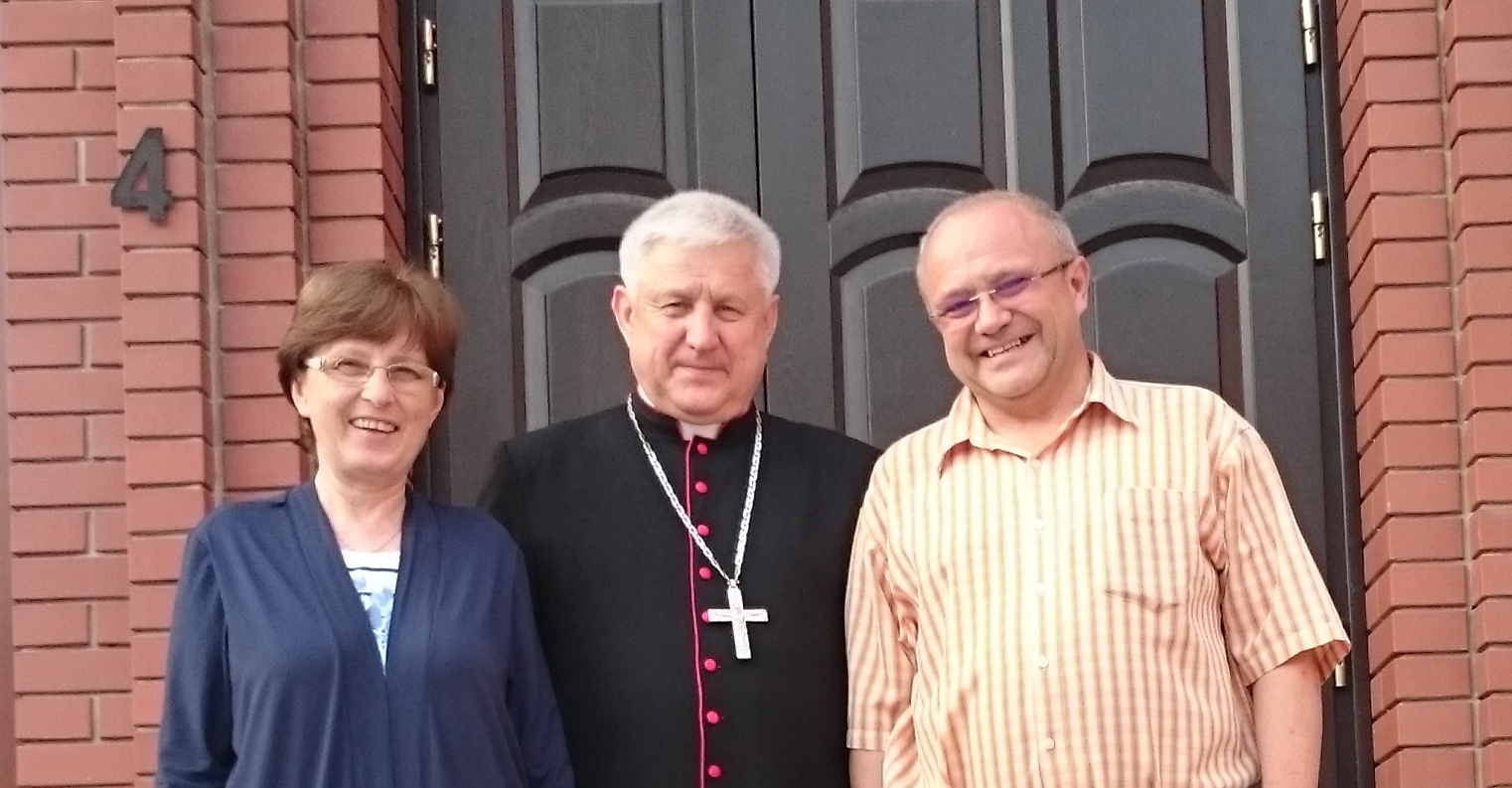
Elena Vladova, Martin Uher and Stanislav Szyrokoradiuk, Bishop of Kharkiv
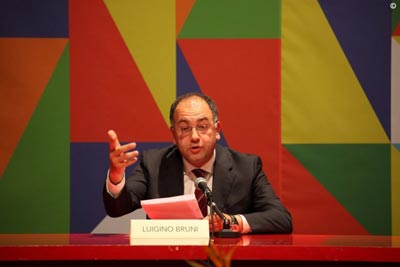
Jul 9, 2016 | Focolare Worldwide
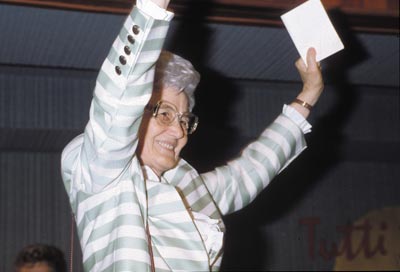
Chiara Lubich, Brazil 1991 – © Centro S. Chiara Audiovisivi
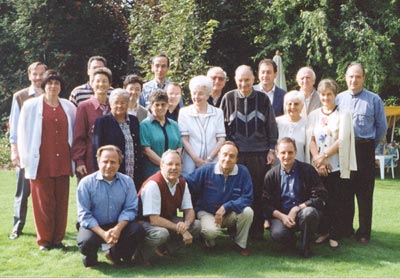
Chiara Lubich and Abba School members (Luigino Bruni, third row, third from right) – © Centro S. Chiara Audiovisivi

© Centro S. Chiara Audiovisivi

Jul 8, 2016 | Focolare Worldwide
 «As my morning flight from Bologna to London, already two hours late due to earlier London storms, circled the skies for an additional 20 minutes, I realized that it would be nearly impossible to make my connecting flight. In fact, a short time later I found myself in an interminable line with hundreds of other customers who had also missed their connections. Airline phones were clogged, so even those with cell phone access were stuck. Most people could summon the patience to wait an hour — but as it become two, three and then way past dinner, the atmosphere began to grow tense. I had settled in with a good book but also began to feel anxious as I realized it would be a challenge to get in touch with the friend who was to pick me up from the airport. Especially when traveling alone, I am not usually talkative with strangers, but at that point I felt a nudge from within to look around, and to remember that the warmth and comfort of God’s presence could be with us, even in this chaotic line. I remembered I had a package of cookies in my bag, and made the first connection with the hungry college students behind me. That was enough to break the ice with everyone in our part of the line. As we began trading stories and commiserating, we also realized that we could help each other. The power from my laptop battery was just enough to charge the cell phone of the German couple who needed to call their family. And this couple was happy to watch my stuff as I scouted out a computer terminal from which I could send an email to my friend. A brief greeting in Italian to another young couple was enough to realize that they and two other couples — all on their honeymoon trips — did not understand the announcements that were being made. I translated for them so that they could navigate their options. After five and a half hours and no alternative flight arrangements yet, we received vouchers for hotel rooms and a meal, and instructions to call the airlines from the hotel. I called from an airport phone and learned that I would need to be back at the airport in just a few hours. As I curled up on an airport chair to catch a few hours of sleep, I realized that notwithstanding the external discomfort, all of these “connections” with my neighbors in the present moment had filled the evening with an unusual sense of peace. And I did make it home the next day, tired, but with a light heart». — Amy Uelmen, Bethesda, MD From Living City May 2016 – www.livingcitymagazine.com
«As my morning flight from Bologna to London, already two hours late due to earlier London storms, circled the skies for an additional 20 minutes, I realized that it would be nearly impossible to make my connecting flight. In fact, a short time later I found myself in an interminable line with hundreds of other customers who had also missed their connections. Airline phones were clogged, so even those with cell phone access were stuck. Most people could summon the patience to wait an hour — but as it become two, three and then way past dinner, the atmosphere began to grow tense. I had settled in with a good book but also began to feel anxious as I realized it would be a challenge to get in touch with the friend who was to pick me up from the airport. Especially when traveling alone, I am not usually talkative with strangers, but at that point I felt a nudge from within to look around, and to remember that the warmth and comfort of God’s presence could be with us, even in this chaotic line. I remembered I had a package of cookies in my bag, and made the first connection with the hungry college students behind me. That was enough to break the ice with everyone in our part of the line. As we began trading stories and commiserating, we also realized that we could help each other. The power from my laptop battery was just enough to charge the cell phone of the German couple who needed to call their family. And this couple was happy to watch my stuff as I scouted out a computer terminal from which I could send an email to my friend. A brief greeting in Italian to another young couple was enough to realize that they and two other couples — all on their honeymoon trips — did not understand the announcements that were being made. I translated for them so that they could navigate their options. After five and a half hours and no alternative flight arrangements yet, we received vouchers for hotel rooms and a meal, and instructions to call the airlines from the hotel. I called from an airport phone and learned that I would need to be back at the airport in just a few hours. As I curled up on an airport chair to catch a few hours of sleep, I realized that notwithstanding the external discomfort, all of these “connections” with my neighbors in the present moment had filled the evening with an unusual sense of peace. And I did make it home the next day, tired, but with a light heart». — Amy Uelmen, Bethesda, MD From Living City May 2016 – www.livingcitymagazine.com
Jul 7, 2016 | Focolare Worldwide
https://vimeo.com/171535556
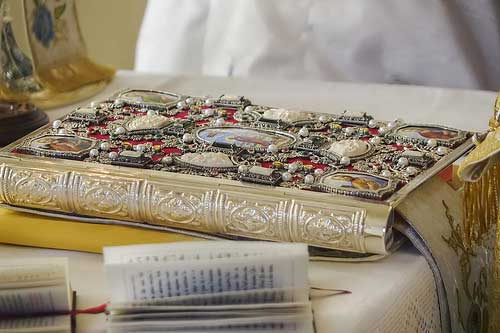
Jul 6, 2016 | Focolare Worldwide

Divine Liturgy at the Patriarchal and Stavropegial Monastery of Gonia. PHOTO: © POLISH ORTHODOX CHURCH/JAROSLAW CHARKIEWICZ.

 “There is a vein of illusions and dreaming running through the notion of this project,” recounts Flavia Cerino, lawyer and coordinator of activities in Sicily. We have come up against one of the most complex realities regarding migration, one of the most urgent problems: that of unaccompanied foreign minors (UAM) that arrive on the Italian coasts exhausted from the long voyages, but still full of hope for the future. Among the migrants who reach Europe, unaccompanied minors are undoubtedly the ones most in need of support. In the first five months of 2016 (UNICEF), 7,000 new arrivals were registered in Italy, double the number from the same period in previous years. “In order to be able to live legally in Italy, Flavia adds, these teenagers need to be inserted into the work force as soon as possible. If they don’t manage to do that and to obtain the proper documents, once they become legal adults they are considered illegal with the concrete possibility of falling into an illegal underground network.” “We reflected at length on possible interventions,” adds Francesco Tortorella from the NGO Amu (Azione per un Mondo Unito) and one of the promotors of the present project. We also conferred with a variety of professionals that are familiar with the minute details of this issue. Another promoter, the Cooperativa Fo.Co , has been working for years with teenage migrants and accompanying them over the course of their lives. The contribution of the New Families Association was important from the very start: these teenagers are mostly in need of a family in the broadest sense of the word.”
“There is a vein of illusions and dreaming running through the notion of this project,” recounts Flavia Cerino, lawyer and coordinator of activities in Sicily. We have come up against one of the most complex realities regarding migration, one of the most urgent problems: that of unaccompanied foreign minors (UAM) that arrive on the Italian coasts exhausted from the long voyages, but still full of hope for the future. Among the migrants who reach Europe, unaccompanied minors are undoubtedly the ones most in need of support. In the first five months of 2016 (UNICEF), 7,000 new arrivals were registered in Italy, double the number from the same period in previous years. “In order to be able to live legally in Italy, Flavia adds, these teenagers need to be inserted into the work force as soon as possible. If they don’t manage to do that and to obtain the proper documents, once they become legal adults they are considered illegal with the concrete possibility of falling into an illegal underground network.” “We reflected at length on possible interventions,” adds Francesco Tortorella from the NGO Amu (Azione per un Mondo Unito) and one of the promotors of the present project. We also conferred with a variety of professionals that are familiar with the minute details of this issue. Another promoter, the Cooperativa Fo.Co , has been working for years with teenage migrants and accompanying them over the course of their lives. The contribution of the New Families Association was important from the very start: these teenagers are mostly in need of a family in the broadest sense of the word.”  The first phase of the project called “Welcoming & Getting Settled“ was officially begun on last June 6th in Catania and in Ragusa with the launching of professional training courses. Forty three young people were selected, ten of whom were Italians who, because of various disadvantaged backgrounds live in foster settings. The presence of Italian youngsters is a strong point of the project, which wishes to care for vulnerable youngsters regardless of their citizenship. Training will begin in October with the first trainee placements. The second phase of the project – the most innovative – foresees the involvement of businesses that are willing to insert the young people both in the work process and in families in which the young people can find a community of stable relationships that are indispensable for their social integration. Territorial connections have been set up all over Italy that are joined by a secure network that connect families and businesses with the training and work needs of the teenagers. Businesses that belong to the Economy of Communion and to the AIPEC will play a fundamental role, beginning from a network that aims to offer opportunities for the young people who participate in the project to be inserted in the work force.
The first phase of the project called “Welcoming & Getting Settled“ was officially begun on last June 6th in Catania and in Ragusa with the launching of professional training courses. Forty three young people were selected, ten of whom were Italians who, because of various disadvantaged backgrounds live in foster settings. The presence of Italian youngsters is a strong point of the project, which wishes to care for vulnerable youngsters regardless of their citizenship. Training will begin in October with the first trainee placements. The second phase of the project – the most innovative – foresees the involvement of businesses that are willing to insert the young people both in the work process and in families in which the young people can find a community of stable relationships that are indispensable for their social integration. Territorial connections have been set up all over Italy that are joined by a secure network that connect families and businesses with the training and work needs of the teenagers. Businesses that belong to the Economy of Communion and to the AIPEC will play a fundamental role, beginning from a network that aims to offer opportunities for the young people who participate in the project to be inserted in the work force.  The New Families NPO Association’s network has been activated for months, promoting willingness to welcome the young people, since it has already had experience in welcoming them for periods of vacation. “At the end of 2015,” Paola Iacavone wrote, “seven teenagers who live in a group home have been able to have an experience in a family, which was for them and for the family that welcomed them, a very positive experience. They were from Egypt, Mali and Senegal, Coptic Orthodox Christians and Muslims – and they were welcomed by families from Rome, Lanciano, Ancona and Cosenza, Italy.” In short, this experience has only just begun! The project was highly welcomed by the institutions and, if this first experimental model functions, it will certainly be proposed and carried out on a larger scale just as everyone hopes it will. For more information, details and how to contribute go to project website.
The New Families NPO Association’s network has been activated for months, promoting willingness to welcome the young people, since it has already had experience in welcoming them for periods of vacation. “At the end of 2015,” Paola Iacavone wrote, “seven teenagers who live in a group home have been able to have an experience in a family, which was for them and for the family that welcomed them, a very positive experience. They were from Egypt, Mali and Senegal, Coptic Orthodox Christians and Muslims – and they were welcomed by families from Rome, Lanciano, Ancona and Cosenza, Italy.” In short, this experience has only just begun! The project was highly welcomed by the institutions and, if this first experimental model functions, it will certainly be proposed and carried out on a larger scale just as everyone hopes it will. For more information, details and how to contribute go to project website. 







